Global Addressing

What are the consequences of not addressing climate debt ?
Addressing climate debt is crucial to mitigate environmental degradation, social injustices, and economic instability. Failure to do so exacerbates global warming effects like loss of biodiversity, sea level rise, and extreme weather events. It also leads to inequality, health issues, food insecurity, economic downturn, investment risks, and job losses. Recognizing and addressing climate debt is essential for achieving global sustainability goals and ensuring peace and justice worldwide.

How effective has the United Nations Framework Convention on Climate Change (UNFCCC) been in addressing global climate change ?
The United Nations Framework Convention on Climate Change (UNFCCC) is a global treaty adopted in 1992 to stabilize greenhouse gas concentrations and prevent dangerous interference with the climate system. While it has achieved some successes, such as promoting international cooperation and establishing mechanisms for climate finance and technology transfer, its effectiveness has been limited by factors like lack of compliance and political will. To make a significant impact on global climate change, stronger commitment and concrete actions from all parties involved are necessary.

How effective have international agreements, like the Paris Agreement, been in addressing global warming ?
The Paris Agreement, adopted in 2015, is a global climate accord aimed at limiting global warming to well below 2°C, ideally to 1.5°C, above pre-industrial levels. Key features include long-term goals for balancing emissions with removals by sinks, nationally determined contributions (NDCs) for emission reductions and adaptation efforts, transparency in reporting, financial support for developing nations, and mechanisms for addressing loss and damage due to climate change impacts. The agreement has been praised for its ambitious targets, widespread participation, flexibility, and promotion of international cooperation but faces challenges such as lack of enforcement, insufficient ambition in NDCs, reliance on political will, and equity concerns. Despite these challenges, progress has been made in areas like renewable energy growth, clean technology innovation, and green finance. The overall effectiveness of the Paris Agreement hinges on the commitment and actions of its signatories, requiring enhanced cooperation and sustained effort to achieve its goals.
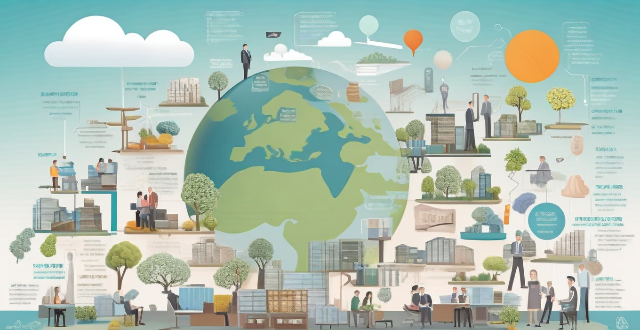
What is the importance of international cooperation in addressing climate change ?
International cooperation is crucial in addressing the global challenge of climate change. It enables shared responsibility, economic efficiency, political will, global impact, innovation and technology transfer, and strengthening multilateralism. By working together through international organizations and treaties, countries can take decisive action on climate change and create a sustainable future for all.

How effective are international agreements like the Paris Agreement in addressing climate change ?
The Paris Agreement, adopted in 2015, is a significant international accord aimed at addressing climate change by limiting global warming. It has several positive aspects such as creating political momentum, raising public awareness, encouraging technological innovations, and promoting green finance. However, it also faces challenges like ambiguous targets, lack of enforcement, insufficient funding, equity concerns, and conflicts with economic interests. The effectiveness of the agreement depends on the commitment and action of its signatories, cooperation among nations, strength of Nationally Determined Contributions (NDCs), and follow-through on financial and technical support.

How can international cooperation on climate change contribute to global security ?
International cooperation on climate change is vital for global security. It helps mitigate environmental disasters, promotes economic stability and growth, enhances social cohesion and peace, facilitates technology and knowledge sharing, and strengthens global governance and diplomacy. Through joint efforts, nations can address one of the most pressing challenges of our time and secure a safer future for all.

What is the importance of mental health in global health initiatives ?
This document discusses the importance of mental health in global health initiatives. It explains why mental health matters and how it affects physical health, economic stability, and social outcomes. The document also discusses how mental health affects global health initiatives and emphasizes the need for culturally sensitive approaches to address mental health issues sustainably.
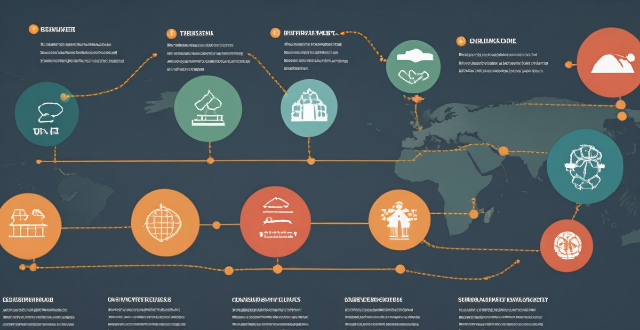
How does TCFD align with other global reporting initiatives like the Global Reporting Initiative (GRI) ?
The Task Force on Climate-related Financial Disclosures (TCFD) and the Global Reporting Initiative (GRI) are two global sustainability reporting frameworks that share several key points of alignment. Both provide guidelines for companies to report on their sustainability performance, with TCFD focusing specifically on climate-related financial disclosures and GRI covering a broader range of sustainability issues. They also emphasize the importance of materiality assessment, stakeholder engagement, risk management, and climate change disclosures in determining which aspects are most relevant to an organization's business model and strategy. By following both frameworks, companies can provide a more comprehensive picture of their sustainability performance and demonstrate their commitment to addressing climate change and other sustainability issues.
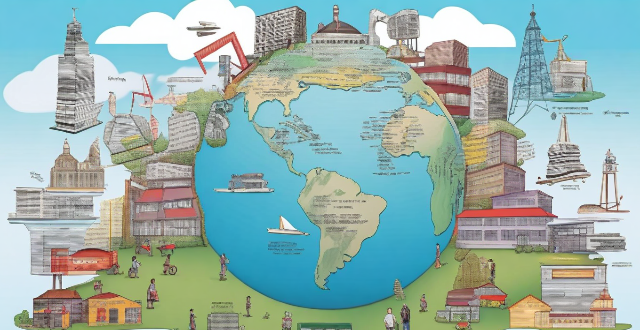
How can international education help address global issues like climate change and inequality ?
International education plays a crucial role in addressing global issues by promoting cross-cultural understanding, enhancing global citizenship, building networks and partnerships, promoting sustainable development through curriculum changes and research initiatives focused on sustainability principles, and encouraging collaboration among individuals and organizations from around the world.

How does international environmental law address global warming ?
International environmental law plays a crucial role in addressing global warming by setting standards, encouraging cooperation, and promoting sustainable practices through treaties, agreements, and principles. The Framework Convention on Climate Change (UNFCCC), the Kyoto Protocol, and the Paris Agreement are key legal instruments that establish targets for reducing greenhouse gas emissions and provide mechanisms for compliance and financial support. Other initiatives such as Regional Seas Programmes, the Convention on Biological Diversity (CBD), and Forest Law Enforcement, Governance and Trade (FLEGT) also contribute to mitigating climate change. Challenges include enforcement, political will, and ensuring equity and justice in actions taken. As the fight against global warming continues, international environmental law must adapt to evolving scientific, political, and technological landscapes, requiring collaboration and innovation among nations.
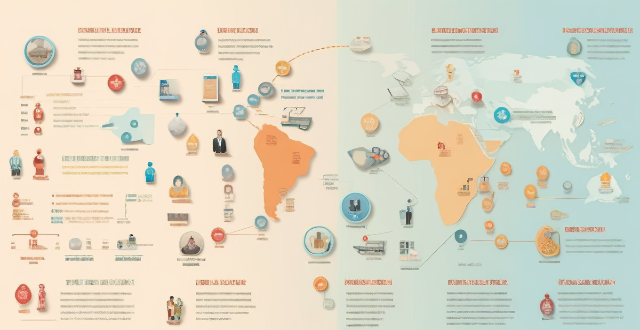
What challenges do countries face when working together on a global scale ?
Global collaboration faces political, economic, cultural, and logistical challenges. Politically, differing national interests, sovereignty concerns, and leadership dynamics can impede progress. Economically, fair resource allocation, trade agreements, and sanctions are contentious issues. Culturally, language barriers, diverse values, and educational gaps pose challenges. Logistically, coordination across time zones, travel restrictions, and technology disparities complicate matters. Addressing these challenges with open dialogue and cooperation is key to achieving shared global goals.

How has the integration of sports and multiculturalism influenced global athletic events ?
The article discusses how sports and multiculturalism have influenced global athletic events, making them more diverse, inclusive, and engaging. It highlights the increased diversity and inclusivity, cultural exchange and celebration, promotion of gender equality, addressing social issues, and economic benefits for host countries. The article concludes by stating that these events continue to evolve and adapt to an increasingly interconnected world.

What is the Paris Agreement and how does it contribute to global climate governance ?
The Paris Agreement, adopted in 2015, is a landmark global climate change agreement aimed at limiting global warming to below 2°C and pursuing efforts to limit it to 1.5°C above pre-industrial levels. It contributes significantly to global climate governance by establishing mechanisms such as Nationally Determined Contributions (NDCs), enhancing transparency and accountability, providing finance and capacity building, addressing loss and damage, conducting global stocktakes, and setting long-term goals. These measures help track progress, hold countries accountable for their commitments, support vulnerable nations, assess collective progress, and encourage more aggressive action towards mitigating climate change.

How does climate variability affect global weather patterns ?
The impact of climate variability on global weather patterns is substantial, affecting temperature, precipitation, wind patterns, and extreme weather events. Key influences include El Niño and La Niña phases, monsoon systems, altered rainfall distribution, jet stream variations, tropical cyclones, heatwaves, cold spells, storms, floods, and droughts. Long-term climate trends like global warming also significantly affect weather patterns. Understanding these interactions is crucial for predicting future conditions and addressing climate-related challenges.
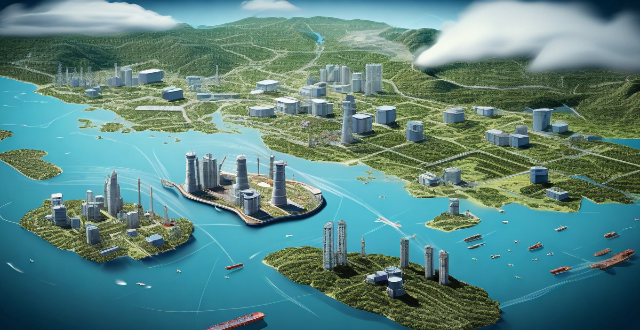
Is geoengineering a viable solution to global warming ?
Geoengineering, also known as climate engineering or earth system management, refers to the intentional manipulation of the global climate on a large scale to counteract the effects of global warming and reduce the risks associated with climate change. While geoengineering has potential benefits such as mitigating climate change, providing faster responses compared to conventional methods, and being relatively inexpensive, it also comes with uncertainties regarding long-term effects, lack of international regulation and governance, and limited scope compared to other mitigation strategies. Therefore, geoengineering should not be seen as a substitute for conventional mitigation strategies but rather complement them. Extensive research and international cooperation are essential before implementing any large-scale geoengineering projects to ensure their safety and effectiveness in addressing climate change challenges.

How has global warming impacted sea levels around the world ?
Global warming, primarily caused by greenhouse gas emissions from human activities, has significantly impacted sea levels. This includes melting glaciers and ice sheets, thermal expansion of ocean waters, coastal erosion, saltwater intrusion, increased flooding and storm surge risks, and displacement of coastal communities. Addressing these issues requires both mitigation efforts to reduce emissions and adaptation strategies to cope with the changes already underway.

What is global warming and how does it affect the Earth's climate ?
Global warming is causing rising sea levels, extreme weatherGlobal warming is causing rising sea levels, extreme weatherdiversity, ocean acid ocean acidification, melting permafrost, changes in precipitation patterns, and agricultural impacts. It is a complex issue with far-reaching consequences for our planet's climate. Addressing global warming requires international cooperation and concerted efforts to reduce GHG emissions and transition to renewable energy sources.

What role does international cooperation play in enhancing global health security ?
In the realm of global health security, international cooperation plays a pivotal role. This collaboration among nations and organizations is crucial for addressing health challenges that transcend borders. Here's how international cooperation enhances global health security: ## Surveillance and Early Warning Systems - **Global Surveillance Networks**: By sharing information on disease patterns and potential threats, countries can work together to detect and respond to emerging health risks more effectively. - **Joint Research Efforts**: Collaborative research initiatives help to identify new pathogens and develop diagnostic tools, treatments, and vaccines. ## Strengthening Health Systems - **Capacity Building**: Weaker health systems can be supported through knowledge transfer, training programs, and infrastructure development. - **Resource Allocation**: International aid and funding can target areas most in need, improving healthcare access and quality. ## Coordinated Response to Health Crises - **Disaster Relief**: In times of crisis, such as natural disasters or large-scale outbreaks, international teams can provide urgently needed medical assistance. - **Policy Harmonization**: Aligning policies and procedures across countries ensures a cohesive approach to managing public health emergencies. ## Research and Innovation - **Technology Transfer**: The exchange of innovative medical technologies and practices can lead to better prevention and treatment options globally. - **Collaborative Trials**: Multi-country clinical trials accelerate the evaluation and adoption of new interventions. ## Education and Training - **Skill Development**: International educational programs prepare healthcare workers with the latest knowledge and skills. - **Public Awareness Campaigns**: Joint efforts in public health education can improve global health literacy and promote preventive measures. ## Norms and Standards - **Harmonization of Regulations**: Uniform standards for drugs, vaccines, and medical devices ensure quality and safety worldwide. - **Ethical Guidelines**: International ethical standards protect research participants and ensure the integrity of scientific endeavors. ## Financial Support - **Investment in Health**: International financing mechanisms provide critical funding for health programs. - **Economic Stabilization**: Financial support during health crises can prevent economic collapse in affected regions. ## Information Sharing - **Transparency**: Open communication about health issues encourages trust and cooperation among nations. - **Best Practices**: Sharing successful strategies helps all countries learn from each other's accomplishments and mistakes.

What are the challenges faced by policymakers in making climate decisions ?
Climate change is one of the most pressing issues facing the world today, and policymakers play a crucial role in addressing it. However, making climate decisions can be challenging for several reasons: 1. **Balancing Economic Interests with Environmental Concerns** 2. **Political Pressure** 3. **Scientific Uncertainty** 4. **International Cooperation** 5. **Public Awareness and Engagement** 6. **Allocating Resources** 7. **Adaptation vs. Mitigation** 8. **Long-Term Planning** 9. **Technological Innovation** 10. **Equity and Justice Considerations** Addressing these challenges requires thoughtful deliberation, strategic planning, and a commitment to collaborative problem-solving at all levels of government and society.
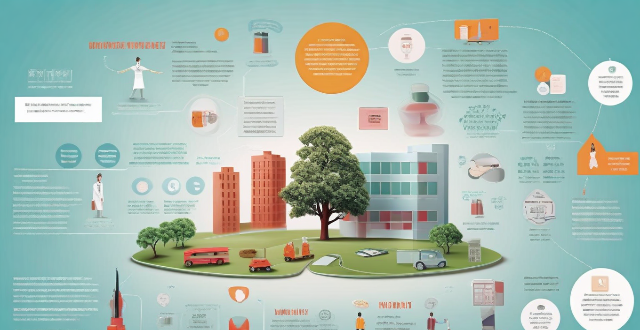
What is the importance of research and development in improving global health security ?
Research and development (R&D) play a vital role in advancing global health security by improving disease detection, prevention, control measures, strengthening health systems, driving innovation, addressing antimicrobial resistance, preparing for future pandemics, and promoting equity and accessibility. R&D leads to the development of advanced surveillance systems, diagnostic tools, vaccines, medications, public health interventions, health infrastructure, technology, capacity building, cross-disciplinary approaches, open science, economic growth, sustainable development, novel antimicrobials, stewardship programs, risk assessment, pan-sectoral approaches, universal health coverage, and global health initiatives.

Can national governments alone tackle the issue of climate change, or is international cooperation necessary for effective global climate governance ?
Climate change is a complex issue that requires global cooperation to effectively tackle. While national governments can implement policies and invest in research within their borders, the interconnectedness of climate change factors necessitates international collaboration. Global agreements, technology transfer, and financial support are crucial components of this cooperation. Ultimately, a combination of national efforts and international partnerships is needed for effective climate governance.

What is the cost of implementing carbon sequestration on a global scale ?
The cost of implementing carbon sequestration on a global scale varies depending on the method used, the location, and other factors. The cost per ton of CO2 removed ranges from $10-$600 for different methods such as afforestation, reforestation, direct air capture, and enhanced weathering. The total cost for global implementation ranges from $100 billion to $6 trillion per year. Several factors affect the cost, including technology development, economies of scale, policy support, social acceptance, and environmental impact. While the initial costs may be high, the long-term benefits of mitigating climate change make it a worthwhile investment.

How has the COVID-19 pandemic impacted global health security ?
The COVID-19 pandemic has significantly impacted global health security by overwhelming healthcare systems, necessitating public health policies such as lockdowns and quarantine measures, and highlighting the importance of international cooperation. The strain on healthcare systems included increased patient loads, shortages of medical supplies, and stress on the healthcare workforce. Public health responses involved vaccination programs, testing and tracing initiatives, and economic challenges due to lockdowns. International cooperation was essential for coordinating a global response, sharing information, and addressing misinformation. The pandemic also highlighted the need for resilient global health systems, sustained investment in public health infrastructure, collaborative research, and technological advancements. Overall, the COVID-19 crisis has prompted efforts to build stronger and more cooperative global health systems prepared for future emergencies.

What is the difference between global warming and the greenhouse effect ?
Global warming and the greenhouse effect are two interconnected phenomena that have a significant impact on Earth's climate. The greenhouse effect is a natural process where certain gases in the atmosphere trap heat from the sun, helping to maintain a stable climate on Earth. On the other hand, global warming is an ongoing phenomenon caused primarily by human activities such as burning fossil fuels and deforestation. While both involve greenhouse gases and their impact on Earth's climate, there are key differences between them, including their cause, duration, impact, and potential solutions.

What role do international sports organizations play in fostering global cooperation ?
International sports organizations are crucial for global cooperation, promoting peace, cultural exchange, economic development, health, gender equality, environmental sustainability, and humanitarian aid.

How does the Paris Climate Agreement aim to reduce global warming ?
The Paris Climate Agreement, adopted in 2015, is a global pact with the primary objective of limiting global warming to below 2°C and pursuing efforts to limit it further to 1.5°C above pre-industrial levels. This summary explores key aspects of the agreement: 1. **Long-term Temperature Goals** emphasize holding the increase in global average temperature well below 2°C and pursuing efforts for 1.5°C. 2. **Nationally Determined Contributions (NDCs)** require each country to set voluntary targets on greenhouse gas emissions and climate change plans. 3. **Enhanced Transparency and Accountability** introduce a system for monitoring compliance through regular reporting. 4. **Finance and Capacity Building** involve developed countries providing financial assistance and capacity building to developing nations. 5. **Loss and Damage** address inevitable impacts of climate change by creating a mechanism for dealing with associated losses. 6. **Global Stocktake** is a periodic review process to assess global progress toward meeting the agreement's goals. 7. **Cooperation and Implementation** highlight the importance of international collaboration for effective implementation of the agreement. These components work together to create a comprehensive approach aimed at mitigating the effects of climate change and adapting to its impacts.

What are the latest trends in the global economy ?
The global economy is influenced by various interconnected factors including digital transformation, sustainability, global trade dynamics, monetary policies, and the rising influence of emerging markets. These trends are reshaping industries, fostering innovation, and influencing economic growth and policies worldwide.

How can developing countries participate effectively in global climate cooperation ?
Developing countries can participate effectively in global climate cooperation by building capacity for climate action, promoting sustainable development pathways, engaging actively in international climate negotiations, and leveraging domestic resources and partnerships. This involves developing national climate policies and strategies, strengthening institutional capacity, integrating climate considerations into national development plans, fostering innovation and technology transfer, participating in global climate dialogue, seeking international support and financing, mobilizing domestic resources for climate action, and fostering cross-sectoral partnerships. By taking these steps, developing countries can contribute significantly to mitigating climate change and adapting to its impacts while promoting sustainable development and poverty reduction.

Can renewable energy sources help in reducing the impact of global warming ?
Renewable energy sources, including solar and wind power, can significantly reduce greenhouse gas emissions and contribute to a sustainable future. These clean energy alternatives offer benefits such as reduced carbon footprint, energy independence, and economic growth. However, challenges like intermittency, storage issues, and high initial costs need to be addressed through grid modernization, advances in storage technology, government incentives, and increased public awareness. By overcoming these obstacles, we can create a more sustainable future for all.

What are the ethical implications of climate loss and damage ?
The ethical implications of climate loss and damage are multifaceted, involving issues of justice, responsibility, human rights, and intergenerational equity. Those who have contributed the least to climate change are often disproportionately affected by its consequences, raising questions about fairness and justice. Responsibility and accountability for addressing these impacts are also crucial, with industrialized nations having historically emitted more greenhouse gases and generally having more resources to invest in climate action than poorer ones. Climate loss and damage pose serious threats to human rights, including the right to life, health, food, water, and housing. Intergenerational equity is also a significant consideration, as current generations must not deprive future generations of the ability to meet their own needs by depleting natural resources and altering the climate system. Addressing these challenges requires global cooperation and a commitment to creating a more equitable and sustainable world for all current and future inhabitants of our planet.